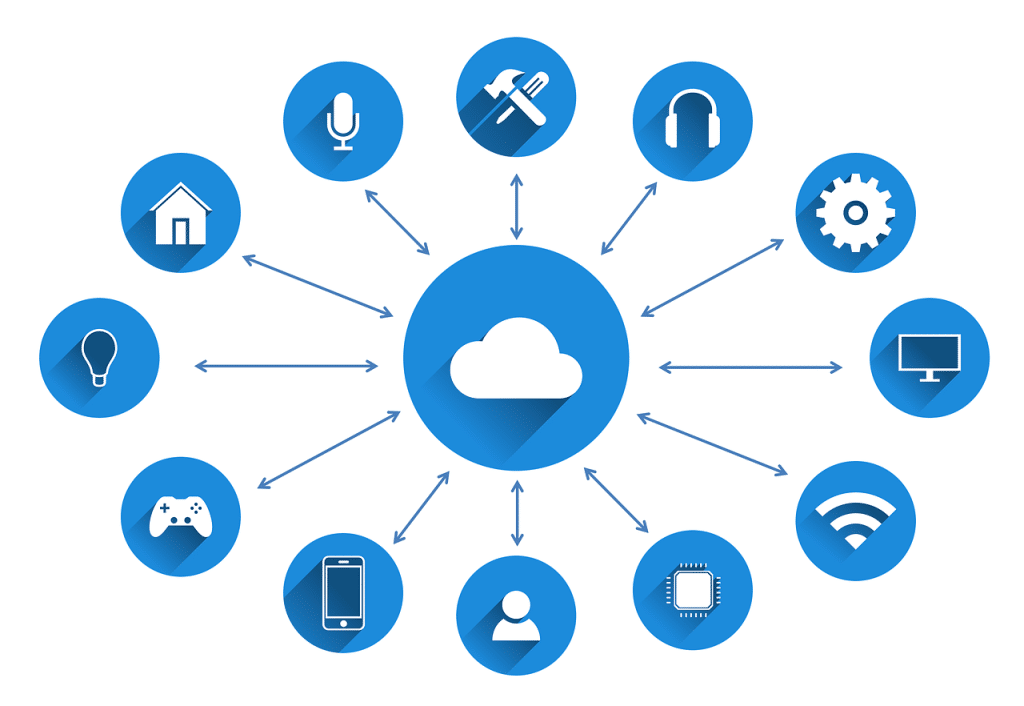The Internet of Things (IoT) technology is evolving. It is advancing with exciting and innovative developments that promise to transform the industry with several use cases. Industry sectors, including healthcare, manufacturing, finance, and others are leveraging its transformative powers to improve operational efficiencies, reduce costs, and improve the products. This technology has created a massive […] The post The Future of IoT Jobs: Roles, Skills & Salary Insights appeared first on Tecuy.
The Internet of Things (IoT) technology is evolving. It is advancing with exciting and innovative developments that promise to transform the industry with several use cases. Industry sectors, including healthcare, manufacturing, finance, and others are leveraging its transformative powers to improve operational efficiencies, reduce costs, and improve the products.
This technology has created a massive opportunity for aspiring job seekers who are looking to break into IoT roles.
IoT professional services market is expected to increase to $226.8 Billion by 2032. This insight poses an excellent opportunity for undergraduates and seasoned professionals to understand the roles
In this article, we will explore the roles that are available in the industry, their responsibilities, and the key skills required to perform well in the roles.
Prominent IoT Job Roles in the Industry
IoT offers promising job opportunities. If you’re excited about the opportunities in the IoT space, the following content can help you understand the responsibilities of each role, the key skills required to excel in the respective role, and the salaries you can expect.

1. Chief IoT Officer (CIoT)
Chief IoT Officer (CIoT), as the title suggests, is a C-level executive who oversees an organization’s overall IoT strategy.
Responsibilities:
- Build and manage organization-wide IoT strategy.
- Ensure company and customer data privacy and security.
- Analyze data from the products to inform marketing efforts, improve customer support, and boost customer satisfaction.
- Collaborate with product teams and research and development teams to achieve business goals.
Key skills:
- Leadership
- Collaboration
- Strong communication skills
Salary: >$200,000 per annum (Zip Recruiter)
2. IoT Architect
IoT Architects are the builders who create and implement the IoT strategy within an organization. In addition to knowledge of IoT, they need communication and management skills.
Responsibilities:
- Develop the company’s IoT vision and technical strategy
- Design an end-to-end IoT architecture
- Enable IoT developers to
- Build processes to create IoT solutions
- Collaborate with other business units to
Key skills:
- Deep technical understanding of embedded design and programming
- Familiarity with the latest developments in the world of IoT
- Business acumen
- Strong communication skills
Salary: Median salary $160,000 per annum
3. Embedded System Designer

An embedded system designer is responsible for building an embedded system (microprocessor-based integrated circuits that perform computational tasks), required for an IoT solution to function properly. To achieve that, they work with hardware, write code to enable the hardware to perform their function smoothly, customize OS, etc.
Responsibilities:
- Design and develop embedded software.
- Debug embedded systems, including hardware, software, and firmware issues.
- Write code for the embedded system.
- Test the embedded system and ensure it meets the requirements.
Key skills:
- Programming skills, including knowledge of C, C++, Java
- Working knowledge of hardware, including sensors, microprocessors, memory, power supplies, communication systems, etc.
- Understanding of software engineering principles, such as object-oriented programming, design principles, etc.
- Good communication skills to effectively communicate with stakeholders and team members.
Salary: Average salary $137, 274 per annum (Zip Recruiter)
4. IoT Hardware Engineer
An IoT solution consists of several hardware components including sensors, actuators, microprocessors, etc. A sensor detects changes in the physical world and an actuator acts according to the changes in the environment. Similarly, each hardware component plays a critical role in enabling an IoT solution to function effectively. A hardware engineer is responsible for designing and developing hardware for an IoT solution.
Responsibilities:
- Design and develop the hardware components.
- Collaborate with firmware and software teams to integrate and optimize the performance of the hardware.
- Build and test prototypes to ensure the reliability and performance of the hardware.
- Identify hardware issues and resolve them.
- Keep track of ongoing developments and adapt design accordingly.
- Collaborate with teams to take prototypes to production.
Key skills:
- Deep understanding of embedded systems, circuit design, and connectivity solutions
- Signal processing
- Microcontroller programming
- Testing and debugging
- Technical documentation
Salary: Average salary $101,752 per annum (Zip Recruiter)
5. IoT Systems Administrator

A system administrator ensures that the network and connected devices are functioning properly. Any challenges that IoT professionals face related to networks or servers are resolved by the system administrator.
Responsibilities:
- Organize the network and devices connected to it.
- Resolve permission issues and provide technical support to other IoT professionals
- Manage permissions across the network and devices.
- Update devices, configurations, and other applications as and when required.
Key skills:
- Knowledge of networks, such as LAN, WAN, MAN, etc.
- In-depth knowledge of operating systems including Windows, Linux, etc.
- Familiarity with embedded systems and hardware devices, such as sensors, actuators, etc.
- Experience working with cloud computing platforms, such as AWS, Azure, etc.
Salary: Average salary $95,000 per annum (Zip Recruiter)
6. Security Engineer
Large-scale IoT system comprises multiple physical devices and digital applications, including sensors, actuators, servers, etc. This leaves the entire system open to vulnerabilities. A security engineer ensures the safety of customer and company data.
Responsibilities:
- Assess risk in the existing system and support mediation and remediation.
- Document security issues and track them through various phases of product releases and changes, including technology and process changes.
- Support bug bounty programs by reviewing incoming vulnerability reports and assessing the severity of the issues
- Coordinate with product managers, site reliability engineers, and developers to execute test plans.
Key skills:
- Strong programming skills in one of the programming or scripting languages such as Python, C++, Go, etc.
- Experience in penetration testing
- Experience working with paid and open-source application security testing platforms such as Burp Suite, OWASP Zap, Qualys, etc.
- Familiarity with OWASP IoT Top Ten, SANS Top 25, WASC, NIST, and other popular security guidelines.
- Knowledge of data security regulations such as ISO/IEC 27001, GDPR, PCI DSS, etc.
Salary: Average salary $152,773 per annum (Zip Recruiter)
7. IoT Developer
An IoT developer is responsible for the complete software development lifecycle of an IoT application.
Responsibilities:
- Ideate, design, and build software applications.
- Create and maintain technical documentation of the software application.
- Collaborate with product managers, embedded system designers, and security engineers to ensure user needs are met.
Key skills:
- Programming skills
- Software development lifecycle
- Cloud computing (AWS IoT, Google IoT Core, Azure IoT)
- Strong communication skills
Salary: Average salary $84,000 per annum (Zip Recruiter)
8. Embedded Program Engineer

An embedded program engineer oversees the development of multiple embedded systems in an organization.
Responsibilities:
- Oversee the creation of multiple embedded systems
- Manage a team of embedded system designers
- Ensure embedded systems are updated as and when changes are made to processes and policies.
- Collaborate with business groups to ensure delivery objectives are met.
Key skills:
- Proficiency in programming skills
- Deep understanding of embedded systems
- Technical know-how of microcontrollers, integrated circuits, sensors, etc.
- Stay updated with the latest developments in the embedded systems ecosystem.
Conclusion
The world of IoT is changing at a steady pace. It has brought in several changes that promise to transform the industry. This change is giving rise to several new opportunities for people who are interested in building a career in the IoT space.
From embedded design to chief executive roles, IoT has roles for everyone interested in the space.
Go get your dream role and fulfill your aspirations!
The post The Future of IoT Jobs: Roles, Skills & Salary Insights appeared first on Tecuy.












